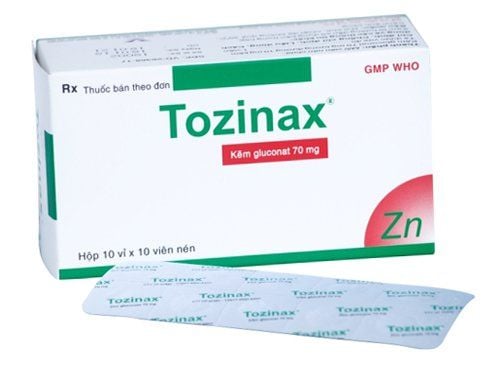This is an automatically translated article.
Lopetab 2mg is on the World Health Organization's list of essential medicines, used for the symptomatic relief of diarrhea caused by inflammatory bowel disease and short bowel syndrome.
1. Effects of the drug Lopetab
Lopetab 2mg contains the main ingredient is Loperamide, belongs to the group of gastrointestinal drugs, indicated in the treatment of the following diseases:
Drugs to relieve symptoms of acute nonspecific diarrhea, chronic diarrhea caused by inflammatory bowel disease intestine . Used to reduce stool volume in patients undergoing ileostomy. Used in the symptomatic treatment of acute diarrhea in adults and children over 12 years of age. Used in the symptomatic treatment of acute episodes of diarrhea caused by irritable bowel syndrome (for use in adults over 18 years of age). Note: Loperamide should not be used as the mainstay of treatment in cases of bloody diarrhea, exacerbation of ulcerative colitis, or bacterial enteritis.
How it works:
Loperamide works by acting on mu-opioid receptors to slow down bowel movements. As a result, it slows down contractions in the intestines, makes stools less watery, and reduces the number of bowel movements, improving diarrhea.
2. Dosage and how to use Lopetab
How to take lopetab: Lopetab 2mg is prepared in the form of tablets and used orally. Diarrhea can lead to dehydration. Therefore, patients should drink plenty of water and minerals to provide electrolytes for the body.
Dosage :
Dosage in the treatment of acute diarrhea:
For adults, the starting dose is 4mg, reduce the dose to 2mg after each loose stool, the maximum dose is 16mg/day . For children from 8 to 12 years old use 2mg 3 times a day; with children from 6 to 8 years old use dose 2mg 2 times a day; time after taking a dose of 1mg/10kg after each loose stool, the maximum dose of a day should not exceed the dose of the first day. Dosage in the treatment of chronic diarrhea: For adults: 4 - 8 mg/day once or divided into several times. For children: Consult a doctor.
Overdose and treatment:
The most common symptoms of Loperamide overdose include drowsiness, vomiting, and abdominal pain or burning. Excessively high doses can cause more serious heart problems such as an irregular heartbeat.
Treatment: Treat according to symptoms.
Contraindications:
Do not use Lopetab for children under 12 years old and the elderly. Contraindicated in patients with pseudomembranous colitis or acute ulcerative colitis caused by broad-spectrum antibiotics. Not to be used in patients with acute dysentery with symptoms such as blood in the stools and high fever. Do not use the drug for patients with acute ulcerative colitis. Contraindicated in patients with invasive bacterial enteritis. The drug must be discontinued when symptoms such as intestinal obstruction, constipation, abdominal distension appear. Contraindicated for patients who are allergic to the ingredients of the drug or have acute infectious diarrhea caused by bacteria capable of attacking deep into the intestinal mucosa such as Salmonella, E.coli, Shigella. Do not use the drug in patients with severe liver failure.
3. Lopetab drug side effects
Some common side effects when using the drug include: Dizziness, fatigue, epigastric pain, constipation, dry mouth, drowsiness, skin rash.Other rare side effects such as: toxic megacolon, paralytic ileus, angioedema, anaphylaxis or allergic reaction, toxic epidermal necrolysis, Stevens-Johnson syndrome, erythema multiforme, urinary retention and stroke due to heat.
4. Be careful when using Lopetab
Patients should not use Loperamide if they are allergic to the drug or have problems such as: Diarrhea with high fever, abdominal pain without diarrhea, ulcerative colitis, diarrhea caused by a bacterial infection, stools there is blood.
If after a period of using the drug, the patient's diarrhea does not improve or the disease appears other symptoms such as bloody stools, fever or abdominal discomfort, you should inform your doctor about your condition. for a more appropriate treatment.
Loperamide should be used with caution in people with liver failure.
In addition, Lopetab should be used with caution in people with severe HIV/AIDS infection, as cases of toxic viral and bacterial megacolon infections have been reported. If, during the course of taking the drug, the patient experiences immediate abdominal distension, treatment with Loperamide should be discontinued.
For pregnant women: Loperamide is not recommended for use during pregnancy or lactation. The ingredient Loperamide in the drug is classified by the US Food and Drug Administration (FDA) in pregnancy category C (the drug group may have a risk of affecting the fetus).
For women who are breast-feeding: The drug may be present in breast milk and is not recommended for nursing mothers.
5. Drug interactions
Loperamide is an anti-diarrheal agent that reduces bowel movements. Therefore, when combined with other antispasmodics, the risk of constipation is increased, including other opioids, anticholinergics, antihistamines, antipsychotics. Loperamide concentrations are increased when co-administered with P-glycoprotei inhibitors, including Quinidine, Ritonavir, and Ketoconazole. Abametapir: The serum concentration of Loperamide may be increased when it is combined with Abametapir. Abatacept, Abemaciclib: The metabolism of Loperamide may be increased in combination with Abatacept. Acarbose: The risk or severity of hypoglycemia may be increased when Loperamide is combined with Acarbose. Acebutolol: Loperamide may increase the arrhythmic activity of Acebutolol. Acetyldigitoxin: Acetyldigitoxin may increase the arrhythmic activity of Loperamide. Alloin: The therapeutic efficacy of Alloin may be reduced when used in combination with Loperamide. Above is the information about the drug Lopetab, patients should carefully read the instructions for use and use according to the dose prescribed by the doctor to achieve the best effect.













